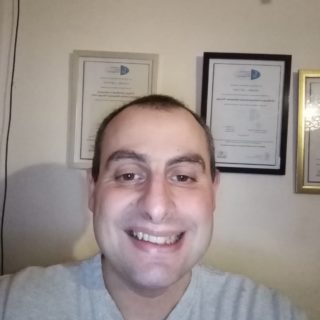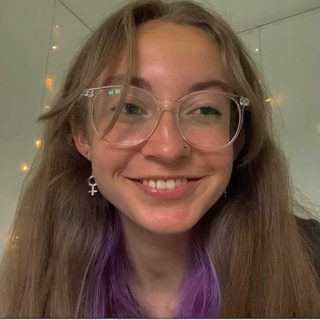Volunteers’ Week: A Look into SANEline’s Support Team
Volunteers’ Week takes place 1-7 June every year. It’s a chance to recognise the fantastic contribution volunteers make to our communities and say thank you.
We sat down with three of our SANEline Support Officers to hear from them what they feel makes SANEline special and gain insights into the daily experiences of those who volunteer on a mental health helpline on a daily basis. With diverse backgrounds and varying years of service at SANE, our Support Officers (which we will refer to as ‘S”, ‘C’, and ‘K‘ for privacy) opened up about the challenges and rewards they encounter while being the guiding voice on the other end of the line when someone reaches out for assistance.
What do you feel makes SANEline special?
S: I think for a lot of people SANEline is the only support that they have or the only support that’s available to them at certain times. Even just in the evenings when other services might have finished or they might not be able to access the kind of support they need. We are here for those people who might be particularly isolated or feel very alone.
C: I think it is very important as people are isolated and a lot of them don’t have anything else to turn to. The little support we offer can be a lifeline. We pick up the phone without any assumptions or judgment and the only goal we have is to really hear the person, and for them to know that we are here.
K: I think SANE is such a wonderful place. I think it’s such a warm and caring place and all of our volunteers and all of our staff really care about our callers.
We don’t know who’s going to be at the other end of the line and they don’t know who they’re going to be talking to, but creating that connection, just in that short space of time, it’s very special.
And how does it feel to you to be able to be that support for people?
S: Honestly, it feels like a privilege to be able to be their support and to be there to listen, especially if they feel they have no one else.

SANEline is open 365 days a year. How important do you feel that kind of consistency is to people seeking help?
C: It is really important that we are open every day, especially during holidays and evenings. It gives us a chance to be there for people to find something, usually in the most desperate times.
K: It’s important to be here every day. If someone wants to call back another night, they’re more than welcome to and just know that we’re here for them. Even in times when they might have other people in their life but they feel they can’t talk to them or they’re not ready to talk about some things with them yet. We take great pride in the fact that we can be there for them in that time. it’s not just a conversation and it might be more impactful than just 20 minutes.
What do you think makes SANEline volunteers unique?
K: I think their commitment, their values. It’s not an easy thing to do to be here on the calls. But there’s motivation and they really care about everyone who calls. That’s a really wonderful thing that we have in our volunteers. And they’re all just so lovely and caring. And it’s just great to work with them.
S: I honestly think one of the biggest things is their commitment. The training process itself is very intensive and we ask a lot from our volunteers. We ask them to come for a shift every single week and that’s what they do, often after work. They really care and if you listen to them on calls, you can really tell how much empathy they have and how much they want to give to the service and to the callers. I think it’s really amazing what they do. We rely on them and they feel like such a core part of our service.
What inspires you or fuels you and your commitment to SANEline and SANE?
C: Even when I was a volunteer it was always about the impact I could make, even if it’s just from 20 minutes on a call or half an hour writing a message. It might seem like a very little part of my life but it creates such a huge impact out there to the person on the other end of the line or the person receiving a text message in a desperate moment. It’s always been about the difference I can make just being myself and being compassionate to someone. It’s quite a simple thing. Just be kind.
K: For me personally, it’s the service that we offer. Being here every day, providing that consistency. It’s also the values that SANE has: being non-judgmental, being empathetic, having ‘listening’ at the heart of the service, and making sure that the callers know that we’re there for them.

When you finish a SANEline shift, is there any overriding emotion or feeling that you consistently feel after? Is it exhaustion?
K: I’d say the first thing is tired. But I never leave here without thinking I haven’t done something with my day. I always feel accomplished. Knowing that you’re going to work in helping someone is quite a really wonderful thing to do. Even if you’re just having a chat about flowers growing in someone’s garden or if it’s something more serious. It makes a big difference coming home knowing that you’ve done something good and you helped someone.
C: I agree that ‘tiredness’ is the first thing. We hold a lot. We hold other people’s emotions, we hold our own emotions. We hold sometimes terrible stories that people tell and you would not believe they survived that. I think it gets exhausting and it is important to look after ourselves. For me, that is to leave whatever happens here, here.
S: I think every shift is different. The first feeling, I would agree is probably tired. But the stories people tell us are very powerful. Sometimes they are going to stay with you for a little while. Sometimes you don’t feel like you’ve helped necessarily, but you know that you held that space for someone. And that is a good feeling in itself.
How would you describe the principle of “holding a space” for someone?
S: I think it’s finding ways to let the caller know that they have this control here. They can use this space to talk about what they want to talk about, feel accepted, and know that you’re not going to judge them. It’s making them feel comfortable enough to share with you what they might not be comfortable or safe enough to talk about elsewhere. It’s making sure that you leave your judgments behind and let them know that they’re safe here.
And how do you approach a SANEline shift to ensure you manage to come with a clear head? Is there anything you do before a shift that gets you in the right kind of mindset?
S: I think the most important thing really is just making sure that you’re taking care of yourself. If you get on the phone and you’re not in a good headspace or you’re tired or you’re preoccupied you’re not going to be there for the caller in the way that you would be if you come to the shift having really taking care of yourself and feeling good. That’s why it’s so important to manage your own well-being and debrief after calls with each other. Make sure you’re there supporting other people, other staff members, and other volunteers to make sure that they are all feeling at their best.
How do you feel when you describe SANEline to your friends or your family? When someone asks you what do you do?
C: It’s always kind of great to say that I work on a helpline and I work at supporting people.
K: I feel proud of the work that we do and the fact that I’m able to work here. It’s always something I say with confidence.
S: I feel proud. It takes a lot of explaining sometimes. Obviously, we’re different from Samaritans, crisis lines, and other helplines that people might be aware of. It’s always good to tell people about SANE and spread the word.
I understand if you don’t feel comfortable answering this, but is there a time that you can remember when you felt really glad that you had been on the other end of the phone? And not necessarily what was that call about, but how did that affect you? How did that stick with you?
S: I think sometimes with those calls, you can come away from them immediately feeling upset and exhausted and it’s only with time it comes the feeling of ‘I’m so glad that I was there and they had someone else at that moment that was so horrible for them’. I can definitely think of a few occasions where it has happened and there are often the cases where you can’t really make much of a difference beyond just being there and accepting that is all you can do.

Why do you think it’s important that SANEline stays a phone call away for people?
K: I think for a lot of people we are the only support that they have and that’s a lifeline for them. Just knowing that somebody out there is at the other end of the phone, willing, happy, and ready to take your call. I think even just having that knowledge, if you’re going through a rough time it’s really significant. Especially if they don’t have anybody else, or if they have loads of people in their life but they just don’t really feel ready to share that with them yet. I think it’s so important to know that there are people out there who care, people who want to talk to you and want to explore what you’re going through with you.
S: I think, obviously, not everybody, but most people have access to a phone. And a lot of people can’t use our online services or they don’t understand how to use other kinds of services. And I think making sure that it is as easy as dialling a number and getting through to a straightaway.
C: I think it’s important that we offer this space, obviously, everyone can decide for themselves whether they want to use it or not. Or whether they need it and when. But at the end of the day, if we are not here, then people don’t even get a chance to be supported, or to feel like they’ve been heard.
What’s your favourite thing about working at SANE? What do you appreciate the most?
S: The thing I appreciate the most is probably just how supportive the environment is, and how important it is to debrief with any member of staff and volunteers how the support is offered. We all really lean on each other and it’s very open. I think without that it would make working here incredibly difficult, but it manages to bring some kind of lightness to the work. And for me, that’s really really valuable.
C: People here, the colleagues, the volunteers, everyone is the sort of person I want to be around. Everyone is kind and we appreciate each other.
SANEline is a national out-of-hours mental health helpline offering specialist emotional support, guidance and information to anyone affected by mental illness, including family, friends and carers. We are normally open every day of the year from 4pm to 10pm on 0300 304 7000.
To learn more visit SANEline Services.
Looking for ways to Volunteer?
Our volunteers are an essential part of the team. Some volunteers have specific skills that they are able to use to help SANE’s support services, while many others offer commitment and enthusiasm, which is equally valued.
Learn more about ways to volunteer here: Volunteer with us





